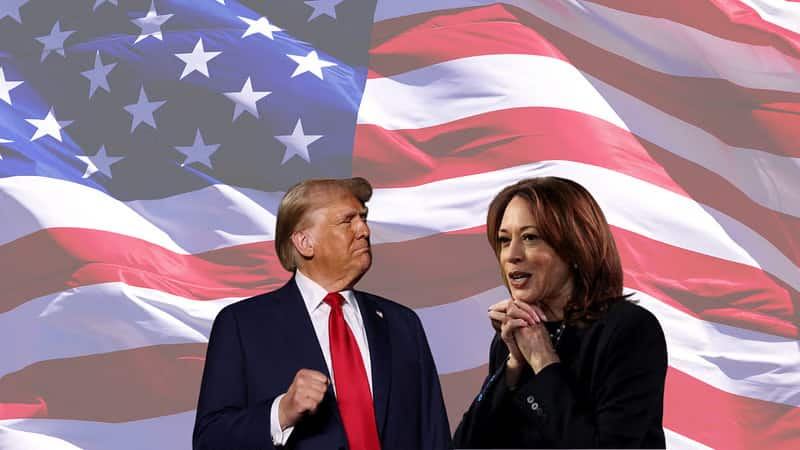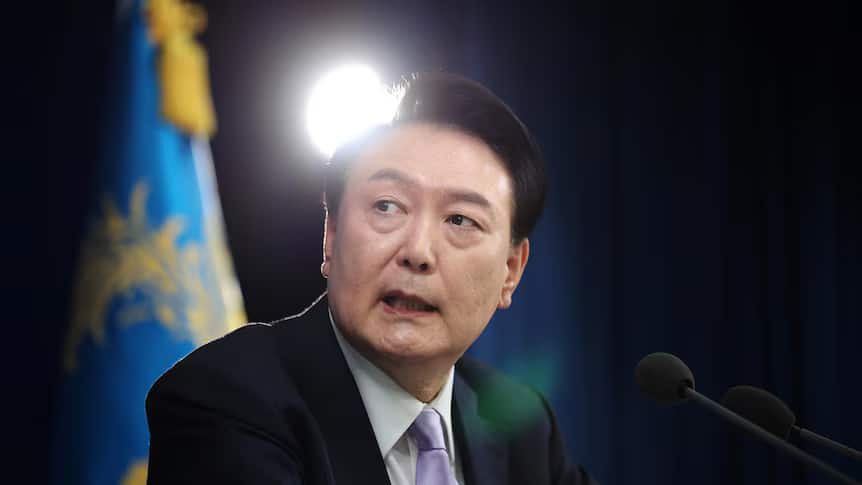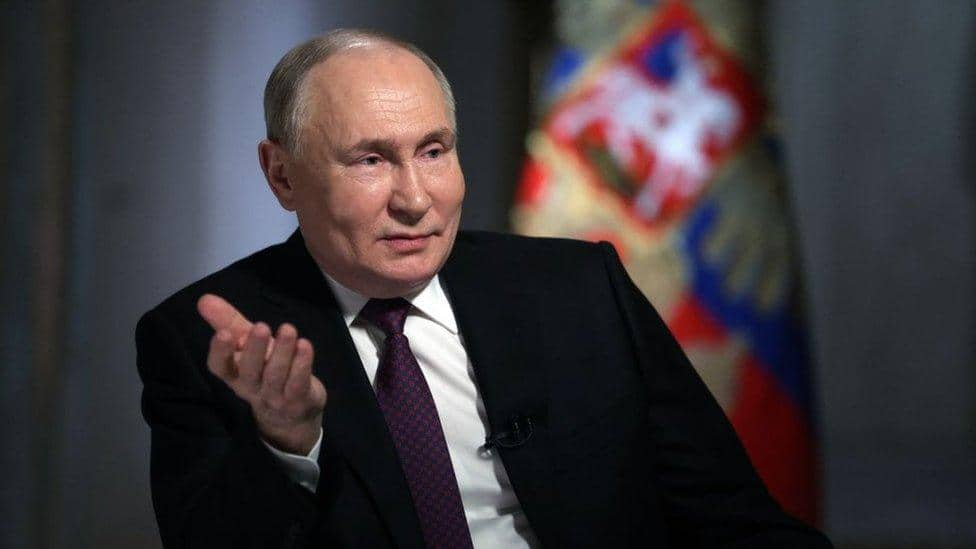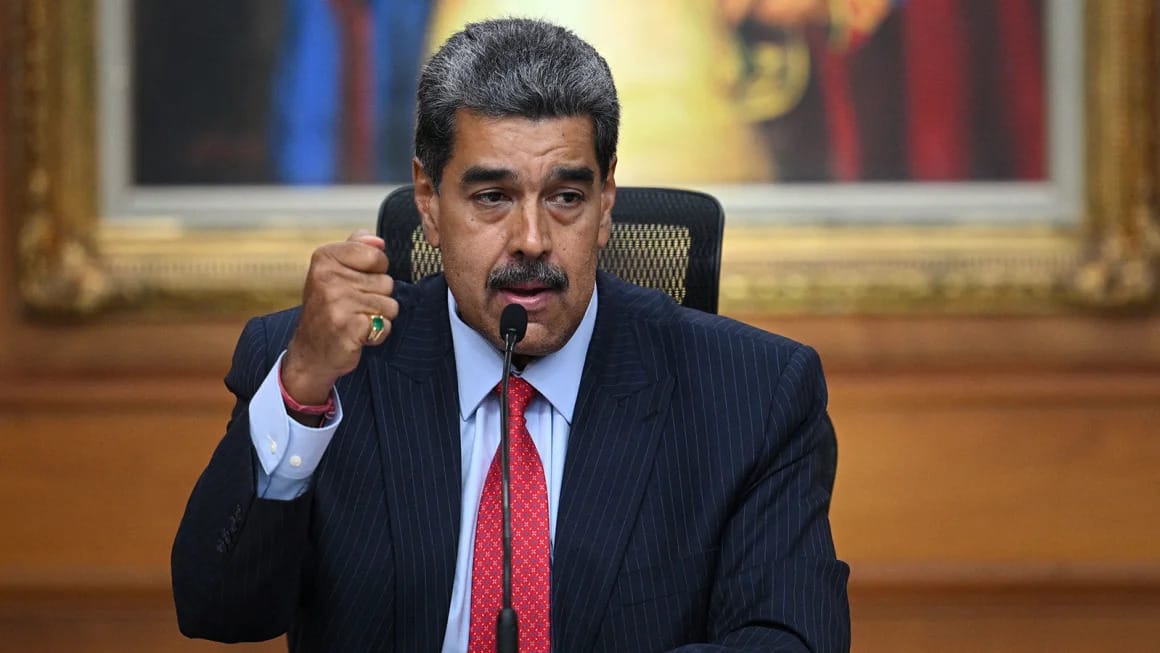



2024 was the ultimate election year with nearly 3.7 billion people — about half the world’s population — casting their vote across 70 countries. Many of these elections, including the Lok Sabha polls in India, garnered significant global attention and shaped the geopolitical landscape of the world in the post-Covid reality. While the US presidential race was the most followed event of the year, it was far from the only major election that made headlines. From Asia to Africa and Europe to the Americas, the year was marked by intense, closely fought electoral battles across continents.
Surge in global electoral participationFor the first time in modern history, an election cycle saw more than two billion eligible voters, making 2024 the largest election year in history, according to the United Nations Development Programme. Beyond sheer numbers, the elections were defined by a dramatic shift in political power worldwide. In many countries, the elections were less about individual candidates and more about the state of democracy, global economic instability, social unrest, and geopolitical tensions.
Across the globe, voter dissatisfaction with the status quo was palpable. From the US to Europe, many voters turned to opposition parties as a response to a variety of local challenges, including economic inequality, inflation and the failures of established political elites.
Notably, many parts of the world saw elections taking place for the first time since the Covid pandemic. And the economic impact of the lockdown also weighed heavy on the minds of voters. According to Carnegie Endowment for International Peace think-tank, 2024 was a terrible year for the incumbents with a majority of countries voting out the ruling party or leader.
A recap of the 5 big elections of 2024 that made headlines in India too: United States Republican and Democratic presidential candidates, Donald Trump and Kamala Harris. Credit: Reuters Photos
Republican and Democratic presidential candidates, Donald Trump and Kamala Harris. Credit: Reuters PhotosThe 2024 United States presidential election, undoubtedly the most-watched in the world, took a dramatic and unexpected turn. Initially set to be a rematch between President Joe Biden and former President Donald Trump, the election became a spectacle of political and personal upheaval. Midway through the year, Biden’s re-election campaign was marred by a disastrous debate performance and growing health concerns, prompting a last-minute shift in the Democratic Party’s candidate. Eventually, Vice President Kamala Harris replaced Biden as the Democratic nominee.
On the other hand, Trump faced his own set of challenges, most notably surviving an assassination attempt that stirred immense national attention. Despite the turbulence, Trump’s campaign gained momentum, particularly in key swing states. His victory marked a dramatic comeback, securing his first-ever popular vote win. As the election unfolded, it became evident that the Republican Party would control both the Senate and potentially the House, ushering in a new wave of political reforms focused on economic stability, immigration, and foreign policy.
The challenges Biden faced and Trump’s resurgent popularity highlights the deepening polarisation that has defined American politics in recent years. In particular, Trump’s rhetoric on immigration, economic reforms, and the Middle East played a pivotal role in galvanizing his support base, which in turn shaped the broader national conversation on governance.
Bangladesh Sheikh Hasina. Credit: Bloomberg Photos
Sheikh Hasina. Credit: Bloomberg PhotosIn South Asia, Bangladesh’s election was another defining moment in 2024. The January election saw the ruling Awami League, led by Sheikh Hasina, secure a fourth consecutive term in power. While Hasina’s victory was hailed by her supporters, it was overshadowed by significant allegations of voter suppression, violent protests, and irregularities, which observers believed undermined the integrity of the electoral process. These allegations sparked widespread discontent, leading to mounting unrest across the nation.
The situation reached a boiling point when student-led protests against Hasina’s government escalated into a full-scale anti-government movement. These protests, fueled by controversial policies and the perception of electoral fraud, forced Hasina to flee to India in August. In the aftermath of Hasina's departure, the military, in agreement with the protest leaders, installed Nobel Peace Prize laureate Muhammad Yunus as the head of an interim government. This political upheaval set the stage for a snap election in 2025, a year that will be crucial for determining Bangladesh’s future direction.
While Hasina’s departure and Yunus’ installation as interim head brought hope to many, the road ahead for Bangladesh remains uncertain.
Pakistan Pakistan Prime Minister Imran Khan. Credit: Facebook/@ImranKhanOfficial
Pakistan Prime Minister Imran Khan. Credit: Facebook/@ImranKhanOfficialPakistan's 2024 elections were influenced heavily by the shadow of former Prime Minister Imran Khan. Khan’s ouster in 2022, followed by his imprisonment and the subsequent ban on his party, Pakistan Tehreek-e-Insaf (PTI), did not end his political influence.
Khan couldn't contest from jail and was embroiled in a litany of legal cases. Most of the aides were jailed alongside him. To borrow a cricket analogy, the former PM was batting on an uncertain wicket, with most of his teammates back in the dressing room. However, the cricketer-turned-politician still managed to out-score his opponents when over 90 Independents associated emerged victorious in the general election. This was also a wake-up call for the Army-government nexus since the enduring popularity of Khan overshadowed the much-hyped comeback of Nawaz Sharif.
The results reflected a deeply fragmented political landscape as the ruling establishment had to form a coalition government. The lacklustre mandate for the PML-N faded Nawaz's hopes of returning as PM. Eventually, Shehbaz Sharif became the consensus candidate.
The election outcome not only marked a shift in leadership but highlighted the continuing tension between the military-backed establishment and popular political movements, particularly the one led by Khan.
United Kingdom British Prime Minister Keir Starmer. Credit: Reuters Photos
British Prime Minister Keir Starmer. Credit: Reuters PhotosAcross the Atlantic, the United Kingdom’s general election on July 4 marked a notable shift in its political landscape. After 14 years of Conservative rule, the Labour Party, led by Keir Starmer, secured a decisive victory, propelled by growing dissatisfaction with the economic and political policies of former Prime Minister Boris Johnson’s administration. Scandals, coupled with a deteriorating economic situation, had decimated the Conservative Party’s support base and proved fatal for Rishi Sunak, making way for Labour’s resurgence.
The Labour Party’s victory was seen as part of a broader shift in the UK’s political alignment, reflecting growing concerns about economic inequality and a reevaluation of the country’s role in Europe. The result was also a referendum on the UK’s handling of Brexit, as many voters sought a new direction in post-Brexit Britain, calling for a more inclusive and equitable economic strategy.
For the first time in over a decade, the UK was set to pivot away from Conservative policies suggesting that economic reforms and a more progressive agenda would dominate the political discourse in the coming years.
Sri Lanka Sri Lanka's newly elected President, Anura Kumara Dissanayake. Credit: X (@anuradisanayake)
Sri Lanka's newly elected President, Anura Kumara Dissanayake. Credit: X (@anuradisanayake)Sri Lanka, like many countries in the region, found itself embroiled in political turmoil amidst the economic crisis. The election in Sri Lanka was deeply influenced by the country’s economic struggles, which had led to widespread dissatisfaction with the ruling party. Bucking the global trend, the country saw a shift towards the Left. Anura Kumara Dissanayake, who represents the Leftist coalition National People's Party (NPP), secured a decisive victory in the presidential elections. Later, his party also won the parliamentary polls.
Here are the other elections that shaped the global landscape in 2024:Like Sri Lanka, Bhutan was also impacted by economic crises, while the Maldives shifted its political alliances from India towards China as President Mohamed Muizzu campaigned on an “India-Out” platform, highlighting what he described as a long-standing economic dependence on New Delhi. His pro-China stance was solidified further when his party secured a parliamentary majority in April 2024.
In Taiwan, elections in January saw Vice President William Lai of the Democratic Progressive Party (DPP) emerge victorious, despite increasing pressure from China. Beijing’s growing military and political tactics aimed at asserting its claim over Taiwan loomed large over the election, as the island’s future sovereignty remained uncertain. Lai’s victory signifies Taiwan’s continued resistance to Beijing’s influence, but the question of how Taiwan will navigate its relationship with China in the coming years remains one of the most pressing geopolitical concerns in East Asia.
Middle East Ayatollah Ali Khamenei. Credit: AFP Photos
Ayatollah Ali Khamenei. Credit: AFP PhotosIn Iran, the year began with legislative elections in which conservatives dominated, but the death of President Ebrahim Raisi in a helicopter crash set the stage for an unexpected presidential race. Reformist candidate Masoud Pezeshkian gained a lead in the first round of the election, but ultimately lost to his conservative rival in the runoff. Despite this, power in Iran still lies primarily with the Supreme Leader, Ayatollah Ali Khamenei, and the country’s domestic and foreign policies are unlikely to change significantly in the near future.
Southeast AsiaIn Indonesia, the February presidential election brought retired general Prabowo Subianto to power, following a campaign focused on economic issues like poverty, employment, and sustainability. Subianto’s victory also highlighted the growing political influence of Indonesia’s younger generations, particularly Gen Z and millennials, who are increasingly demanding changes to the country’s political system. Despite Prabowo’s win, his party only secured third place in the legislature, creating a fragmented political environment that will require coalition-building.
 South Korean President Yoon Suk Yeol. Credit: Reuters Photos
South Korean President Yoon Suk Yeol. Credit: Reuters PhotosSouth Korea held parliamentary elections in April, resulting in a significant defeat for President Yoon Suk Yeol’s ruling party. Voter dissatisfaction was high, and the opposition Democratic Party secured a majority in the National Assembly, signaling a shift in political sentiment. However, this shift was met with political tension, as President Yoon attempted to impose martial law in December, accusing opposition leaders of “anti-state” activities. The National Assembly swiftly overturned this decision, underscoring the ongoing political struggles within South Korea.
In Japan, Prime Minister Fumio Kishida’s resignation amidst a financial scandal led to an October election, which saw his Liberal Democratic Party (LDP) lose its majority for the first time in over a decade. The LDP’s loss marked the beginning of a potential political realignment in the country, as the political landscape continues to evolve.
EuropeEurope was characterised by the rise of far-right movements and the increasing fragmentation of traditional political parties. The European Parliament elections held in June saw the European People’s Party hold its ground as the largest bloc, but the far-right made significant gains, securing 187 seats out of 266 in the opposition bloc. In France, the National Rally, led by Marine Le Pen, emerged as a significant force, but the left-wing New Popular Front ultimately overtook the far-right in parliamentary elections, forcing President Macron to dissolve Parliament and call for new elections.
 Russian President Vladimir Putin. Credit: BBC
Russian President Vladimir Putin. Credit: BBCRussia’s election, held amidst political repression and the suppression of opposition, saw President Vladimir Putin secure a contested victory with nearly 90 percent of the vote. The election, widely criticized as neither free nor fair, highlighted Putin’s continued grip on power, despite widespread international condemnation.
Africa:In Africa, 2024 was a year marked by growing political instability, particularly the rise of military coups across the continent. Chad’s May presidential election saw Mahamat Déby, the son of the late president Idriss Déby, extend the family’s rule, despite widespread concerns about the legitimacy of the election. Senegal saw pro-democracy protests erupt when opposition leaders were imprisoned, but the government allowed elections to proceed, signalling a degree of resilience in the country’s democratic processes.
In South Africa, the African National Congress (ANC) failed to secure a majority in the National Assembly for the first time since the end of apartheid. The ANC retained its position as the largest party, but the shift to a coalition government marked a major change in South African politics, showing growing discontent with the ruling party.
North and South AmericaIn Mexico, the presidential election saw Claudia Sheinbaum of the Morena Party win a landslide, making her the country’s first female president. Sheinbaum’s victory ensured that President Andrés Manuel López Obrador’s populist policies would continue to dominate Mexican politics, with a strong focus on anti-poverty measures.
El Salvador’s election was one of the most important in Central America, with President Nayib Bukele winning a second term. Bukele’s popularity remained high due to his tough stance on crime, though his authoritarian policies have raised concerns both domestically and internationally.
 Venezuelan President Nicolas Maduro. Credit: AFP
Venezuelan President Nicolas Maduro. Credit: AFPIn Venezuela, President Nicolás Maduro faced significant opposition in a highly contested election. Despite being declared the winner, allegations of election fraud and widespread protests cast doubt on the legitimacy of the process, as the country continues to struggle with political and economic crises.
The 2024 election year was marked by a significant reshaping of the global political landscape. Economic concerns, political instability, and frustration with the functioning of representative democracy all played central roles in this year’s elections.
Discover the latest Business News, Sensex, and Nifty updates. Obtain Personal Finance insights, tax queries, and expert opinions on Moneycontrol or download the Moneycontrol App to stay updated!
Find the best of Al News in one place, specially curated for you every weekend.
Stay on top of the latest tech trends and biggest startup news.